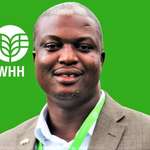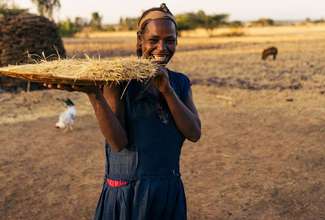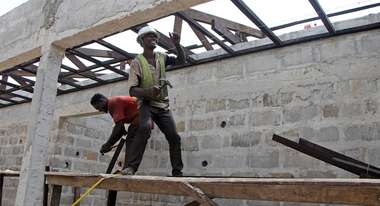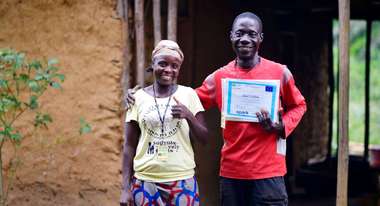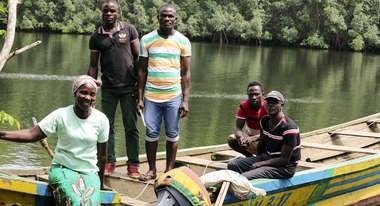Using GPS devices to assist cassava farmers
Cassava is Liberia's second most important food crop after rice. Besides the crop's value addition qualities, it is essential to the country's agricultural GDP. A Welthungerhilfe (WHH) project uses technology to assist farmers to grow this vital crop.
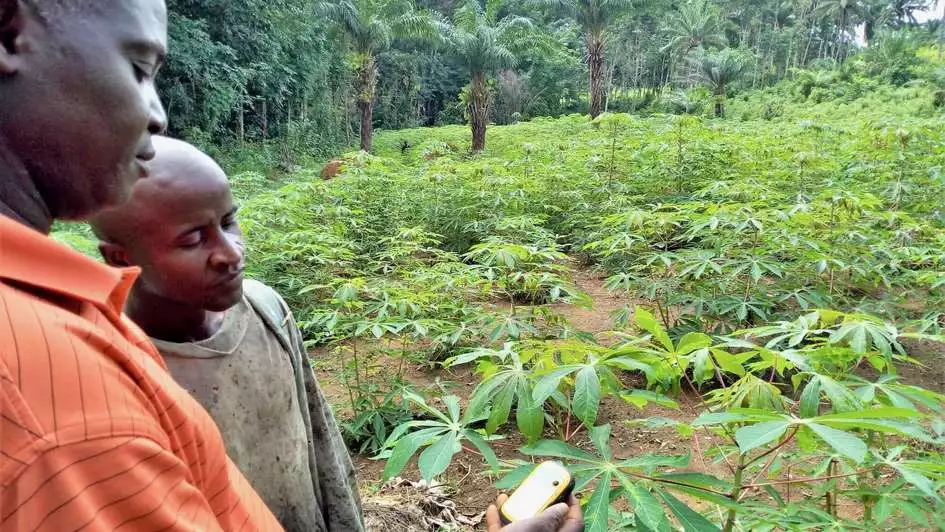
Cassava is grown throughout Liberia. According to the Country's National Cassava Sector Strategy, 1.5 million farmers in Liberia are involved in cassava cultivation, with annual production ranging between 440,000 megatons (Mt) and 560,000 Mt, accounting for about 2% of the world's cassava production. 60% of Liberia's farmers cultivate the crop.
The growing demand for cassava products in the Liberian market has motivated smallholder farmers to grow cassava for household consumption and income to support their families. New planting techniques and the incorporation of simple technologies to enhance productivity provide opportunities to make more from this motivation. For instance, many farmers gather cassava stem cuttings for planting but need more knowledge about the spatial layout of the land and simple methodologies required to plant the cuttings for higher yields. The farmers were planting multiple cuttings close together, expecting high yields.
Assisting farmers with GPS
"I used to make large cassava farms but harvested less than expected," said Jusu M. Sambola, a 45-year-old cassava farmer in Grand Cape Mount County. Poor pest control management was also contributing to low yields. Welthungerhilfe (WHH) and its implementing partners (Concern Worldwide and ZOA) are using the Global Positioning System (GPS) to assist the farmers in solving some of their challenges.
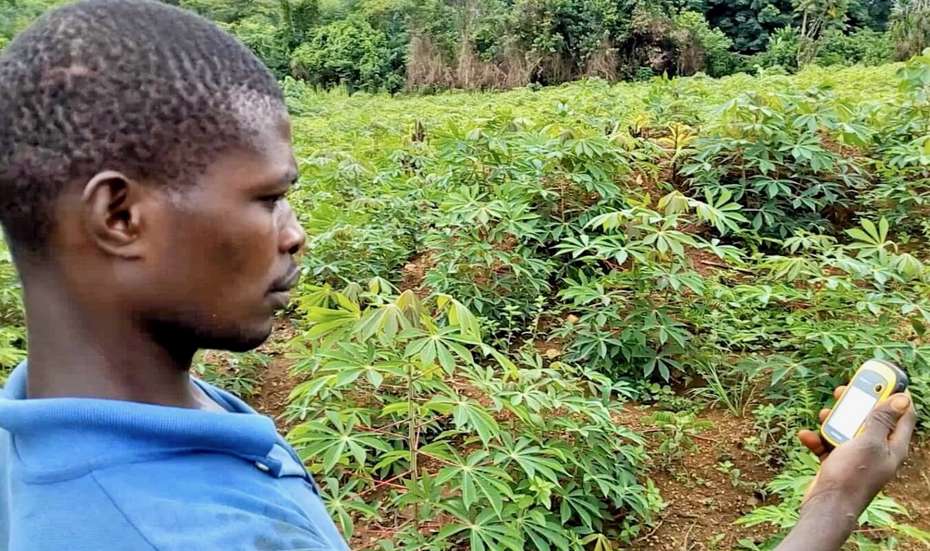
Growing knowledge
WHH and its partners trained over 222 Farmer Field Assistants (FFAs) to use a GPS device to guide the farmers in laying out their farms. This exercise works so that the Farmer Field Assistant sets the GPS at the beginning point of a cassava farm and allows the farmer to hold the device while touring the four corners of their farm. When a farmer approaches the end mark of the last corner, the FFA can coordinate data collected from the four points to determine the actual area of the farm.
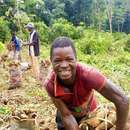
With the new and improved method of cassava farming, I can now harvest more on the same plot.
Jusu M. Sambola Cassava farmerWe have captured coordinates and mapped 5,533 farms for smallholder farmers across 222 communities in 7 counties (Bomi, Grand Cape Mount, Margibi, Grand Bassa, Rivercess, Sinoe, and Grand Kru) using the GPS device. Besides helping the farmers know the size of their farms, we have also used the data to indicate the location of farms on popular mapping tools to attract potential customers for the farmers.
WHH has linked 1,278 cassava farmers to 14 Small and Medium Enterprises (SMEs) / Agric-businesses across the seven counties. WHH is currently constructing 55 storage facilities (SFs) and five Cassava Processing Units (CPUs) with its partners at strategic locations in the seven counties to reduce post-harvest losses for the farmers and facilitate market linkages.
From traditional to motorized cassava grating
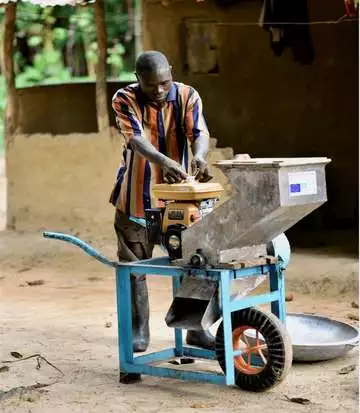
While enhancing the market linkages for cassava farmers, WHH also assisted them to process their cassava by providing motorized graters for processing cassava to maximize their earnings.
“In 2021, 10 bags of cassava harvested from my farm spoilt because no one would come to buy it. This year, thanks to the European Union and WHH through the Partners program for the provision of the cassava grater machine. I can grate the cassava into gari, which I can sell during market days or to buyers who come to our community,” said Harris Kpannah, a program participant in Joe Blow Town, Margibi. WHH and its partners have distributed 221 motorized cassava graters and accessories to farmer groups.
Modern cassava planting method changed Jusu’s story
Together with Concern Worldwide and ZOA, WHH has trained over 6,600 farmers on modern cassava planting methods, such as crop spacing and bio-pesticide production using organic materials. The multi-sectoral interventions have changed the lives of many smallholder farmers like Jusu M. Sambola “I am so happy for what I learnt from this program. With the new and improved method of cassava farming, I can now harvest more on the same plot and I can also earn more money by selling some of my harvest,” says Jusu.




